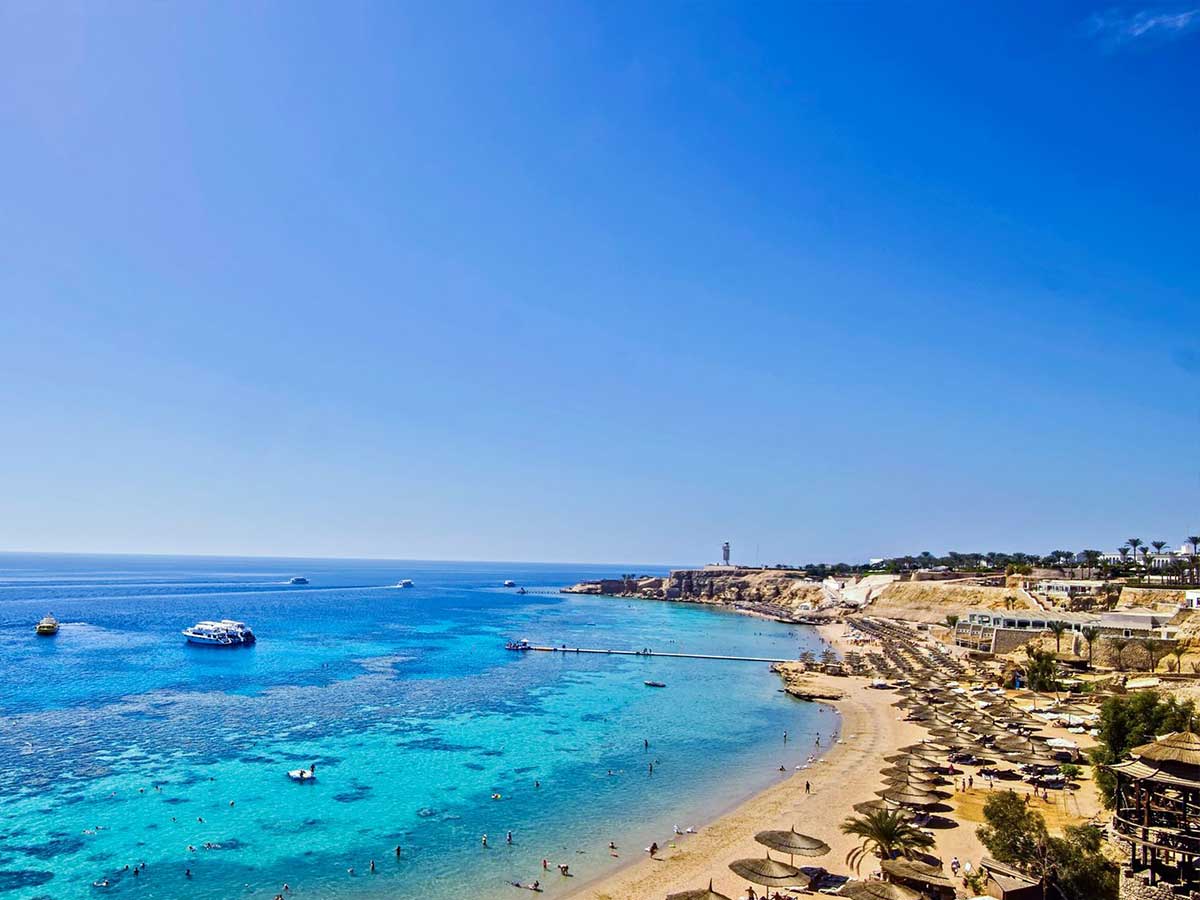Unraveling the Enigmatic Weather of Hurghada: A Comprehensive Guide to Understanding the Climate and Forecast
Table of contents
- Climate of Hurghada
- Factors influencing Hurghada’s weather
- Seasonal weather patterns in Hurghada
- Average temperatures in Hurghada throughout the year
- Rainfall patterns in Hurghada
- Wind patterns and their effects on the weather in Hurghada
- Understanding weather forecasts in Hurghada
- Best time to visit Hurghada based on weather conditions
- Conclusion
Welcome to the enchanting world of Hurghada, where stunning beaches and crystal-clear waters meet a climate that will leave you longing for more. In this comprehensive guide, we will delve into the enigmatic weather patterns of Hurghada,
uncovering the secrets behind its ever-changing climate and providing you with a better understanding of what to expect when you visit this breathtaking destination.
Nestled on the shores of the Red Sea, Hurghada boasts a unique weather system that is influenced by its coastal location.
With its hot desert climate, you can anticipate long, scorching summers and mild winters that attract sun-seekers from around the globe. But, as we unravel the mysteries of Hurghada’s weather, you’ll discover that there’s more to it than meets the eye.
Whether you’re planning a diving adventure, a relaxing beach getaway, or simply want to know what to pack for your trip,
our guide will provide you with the insights you need to make the most of your time in this enchanting seaside paradise.
Climate of Hurghada
Hurghada experiences a hot desert climate, characterized by long, dry summers and mild winters.
The city is blessed with abundant sunshine throughout the year,
making it a popular destination for those seeking warmth and relaxation. The Red Sea acts as a moderating influence, keeping temperatures relatively stable and preventing extreme fluctuations.
Factors influencing Hurghada’s weather
Several factors contribute to the unique weather patterns experienced in Hurghada. The city’s coastal location plays a significant role in shaping its climate. The Red Sea acts as a heat reservoir, absorbing and releasing heat slowly, which helps to regulate temperatures. The surrounding mountains also influence the weather by creating a barrier that shields Hurghada from strong winds and storms.
Seasonal weather patterns in Hurghada
Hurghada experiences two primary seasons: summer and winter. Summers are long and sweltering, with temperatures often exceeding 40 degrees Celsius (104 degrees Fahrenheit). The intense heat is accompanied by low humidity, creating a dry and arid environment. Winters, on the other hand, are mild and pleasant,
with temperatures ranging from 15 to 25 degrees Celsius (59 to 77 degrees Fahrenheit).
Average temperatures in Hurghada throughout the year
Hurghada’s temperature varies significantly throughout the year. In summer, from June to September,
temperatures soar to their peak, reaching scorching highs of 40 degrees Celsius (104 degrees Fahrenheit) or more.
The months of October and November mark the transition into winter,
with temperatures gradually dropping to a comfortable range of 25 to 30 degrees Celsius (77 to 86 degrees Fahrenheit). Winter, from December to February, brings milder temperatures ranging from 15 to 25 degrees Celsius (59 to 77 degrees Fahrenheit).
Spring, from March to May, sees a gradual increase in temperatures, with pleasant days ranging from 20 to 30 degrees Celsius (68 to 86 degrees Fahrenheit).
Rainfall patterns in Hurghada
Hurghada is known for its dry climate, with minimal rainfall throughout the year. The majority of rainfall occurs during the winter months, with December and January receiving the highest precipitation. However, even during the wettest months, rainfall is relatively low, with an average of just a few millimeters. The dry climate of Hurghada makes it an ideal destination for sun-seekers looking to escape rainy weather.
Wind patterns and their effects on the weather in Hurghada
The winds in Hurghada play a crucial role in shaping its weather.
The prevailing winds, known as the “Khamaseen,” blow from the south in the spring and bring warm, dusty air from the Sahara Desert.
These winds can create hazy conditions and slightly higher temperatures. In contrast, the “Shamal” wind blows from the north and brings cooler air from the Mediterranean Sea. The Shamal wind is more common during the summer months, providing a refreshing break from the heat.
Understanding weather forecasts in Hurghada
When planning your trip to Hurghada, understanding weather forecasts can help you make the most of your time. The local meteorological service provides detailed forecasts that include temperature, wind speed, and any potential weather events. It’s important to note that weather forecasts can change, especially during transitional seasons.
Checking the forecast regularly and being prepared for slight variations in weather conditions will ensure you have a pleasant and enjoyable stay in Hurghada.
Best time to visit Hurghada based on weather conditions
The best time to visit Hurghada depends on your preferences and the activities you plan to engage in. If you’re looking for a beach vacation and enjoy hot weather, the summer months of June to September are ideal. However, it’s important to be prepared for the intense heat and take precautions to stay hydrated and protected from the sun.
For those who prefer milder temperatures, the winter months of December to February offer a pleasant climate for outdoor activities such as diving and snorkeling.
Spring and autumn provide a balance between the two extremes, with comfortable temperatures and fewer crowds.
Conclusion
Hurghada’s weather is as captivating as its stunning beaches and crystal-clear waters. Understanding the climate and forecast will help you plan your trip effectively and make the most of your time in this enchanting seaside paradise.
Whether you choose to visit during the scorching summer months or the mild winter season,
Hurghada’s unique weather patterns ensure there’s always something extraordinary waiting to be discovered. So pack your bags, embrace the warmth, and get ready to unravel the enigmatic weather of Hurghada.






